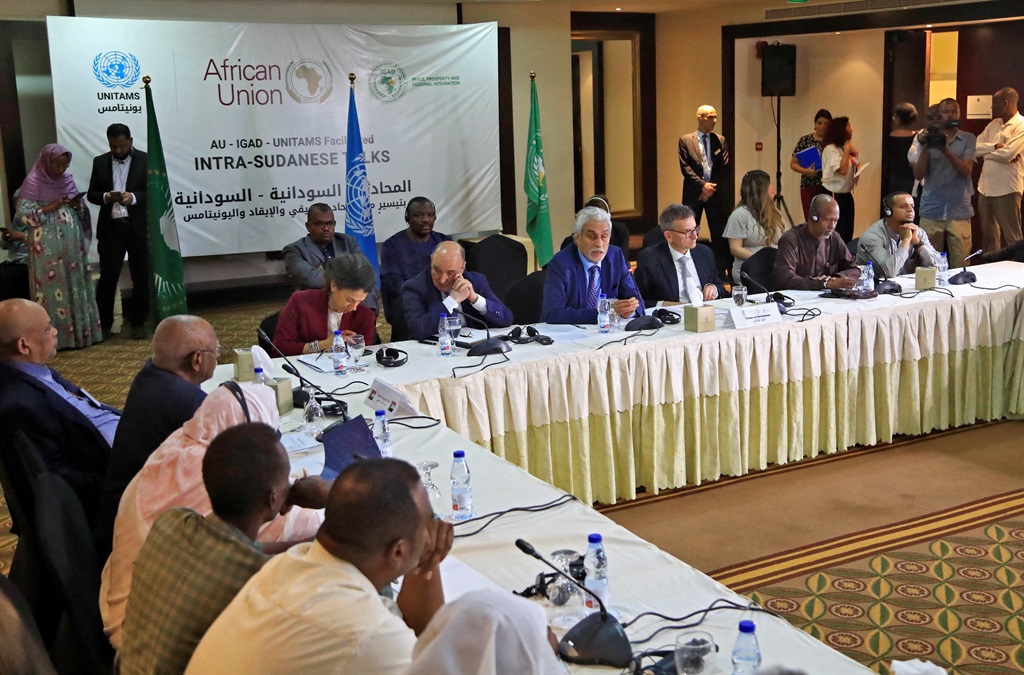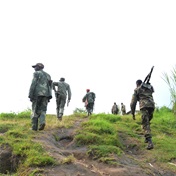
- IGAD's 'Troika on Sudan' will sit down with General Burhan and General Dagalo for face-to-face talks.
- In three weeks' time, the troika intends to push for inclusive national dialogue.
- The AU Commission chairperson has also explained AU sanctions on Sudan.
War-torn Sudan has handed over the rotational leadership of the Intergovernmental Authority on Development (IGAD), as the "Troika on Sudan" also resolved to sit down with commanders of the warring military factions in the next 10 days.
Abdalla Hamdok Al-Kinani served as the 15th prime minister of Sudan from 2019 to October 2021 and again between November 2021 and 2 January 2022.
He was IGAD chairperson until he was forced out by the military coalition that brought together Sudanese Armed Forces' (SAF) General Abdel-Fattah Burhan and Rapid Support Forces' (RSF) Mohamed Hamdan Dagalo, better known as Hemedti.
So, as the de facto head of state, Burhan is the chair of IGAD.
Kenya heads the troika on Sudan which is made up of South Sudan, Somalia and, the latest addition, Ethiopia.
At the 14th ordinary meeting of IGAD in Djibouti on Sunday, the troika announced that it would seek to end the war in Sudan as soon as possible to avoid further loss of life and destruction of infrastructure.
If the troika meets its set targets, it would be the most notable effort to end the war ahead of the United States and Saudi Arabia-led Jeddah talks.
The Jeddah talks have envoys representing Burhan's SAF and Dagalo's RSF.
According to Kenyan President William Ruto, the four nations will sit down face-to-face with Burhan and Dagalo, who will be meeting for the first time since their fallout more than two months ago.
"We will engage General Abdel-Fattah Burhan and Mohamed Hamdan Dagalo in a face-to-face engagement so that we can speak to them directly, on behalf of IGAD with a view of stopping the war that is raging in Sudan, ceasing all manner of hostilities, ensuring that we have a commitment from them to stop the war," he said in a televised media briefing after the IGAD meeting.
We welcome the expansion of the IGAD Troika on Sudan, which will now include Ethiopia. As the chair of the IGAD quartet on resolving the instability in Sudan, Kenya commits to meet the two parties face to face to find a lasting solution to the crisis. Djibouti and South Sudan are… pic.twitter.com/Sg2rJZueXq
— William Samoei Ruto, PhD (@WilliamsRuto) June 12, 2023
Ruto also announced that, in about two weeks, the troika would seek to convince the generals to allow a longer humanitarian corridor for aid to flow into areas that have been blockaded by the war.
In the third week, he said, IGAD would be looking forward to inclusive talks leading to the return of civilians and a lasting peace.
"In the next three weeks, we will begin the process of an inclusive national dialogue," he said.
AU involvement
Addressing the IGAD meeting, AU Commission chairperson Moussa Faki Mahamat warned that "if this war does not stop immediately, civil war will set in, chaos will prevail, and the Sudanese state will totally collapse".
Mahamat said he took offence at how the AU had been blamed for lack of a strong will to solve the crisis in Sudan.
He said that, since the fall of Omar al-Bashir in 2019, he had been closely engaged with civilian and military leaders to find common ground.
"Just 10 days after the overthrow of President al-Bashir in April 2019, I arrived in Khartoum as the first non-Sudanese official. I met all the political, social and military leaders without exception - from the leaders of the party and political coalitions that had just been overthrown, to the multiple political coalitions that emerged as revolutionary forces," Mahamat said.
"Five days after my visit, I deployed a Special Envoy. He very quickly won the support of the prime minister of Ethiopia, my friend and brother Abiy Ahmed, who was also IGAD chair at the time.
He added:
Mahamat added that the AU had suspended Sudan from the AU's Peace and Security Council (PSC), as it did with all countries under the control of coup leaders, such as Mali.
"It should be recalled that this suspension prohibits the suspended country from participating in any AU activities until constitutional order is restored. This suspension is neither within the ambit of the responsibility nor the competence of the AU Commission, let alone its chairperson," he said.
Conflict of interest among Sudan's neighbours
According to the Rift Valley Institute's (RVI) assessment of the Sudan conflict's effect on the region, there are "strong disincentives for involvement. For now, most regional states are hedging their bets and pushing for greater regional engagement in mediation efforts and an eventual peace negotiation".
It said the conflict directly affected South Sudan's oil exports through Port Sudan. As such, the country could not take sides because they were not sure which side would be the eventual victor. Therefore, a neutral stance was their best option.
Due to extensive ethnic and economic cross-border links, the history of conflict spillover during the Darfur war, and Hemedti's contacts with Chadian Arab populations, the conflict offers considerable challenges for Chad. The RSF's relationships in the Central African Republic and with the Wagner Group also posed a security risk.
RVI also argues that Libya's General Khalifa Haftar's early support for the RSF was the most significant example of external meddling so far.
While several Darfuri armed organisations, as well as the RSF, have operated in Libya, weaker transboundary ethnic ties, as well as Haftar's close ties to Egypt, were likely to limit cooperation.
Egypt maintains tight ties with the SAF and has long-term strategic interests in Sudan.
According to the policy paper, Ethiopia's long-term interests in Sudan are opposed to Egypt's and are worsened by border security concerns, especially recent confrontations over Fashaga, and the Tigray conflict.
The News24 Africa Desk is supported by the Hanns Seidel Foundation. The stories produced through the Africa Desk and the opinions and statements that may be contained herein do not reflect those of the Hanns Seidel Foundation.




 Publications
Publications
 Partners
Partners























